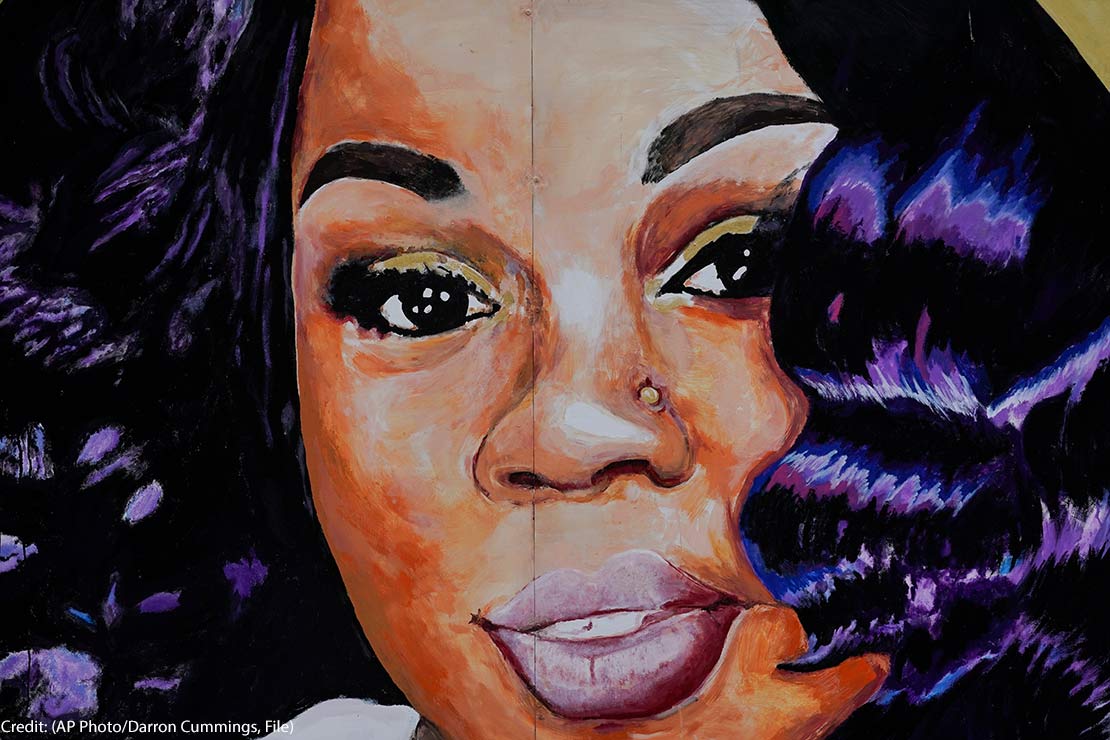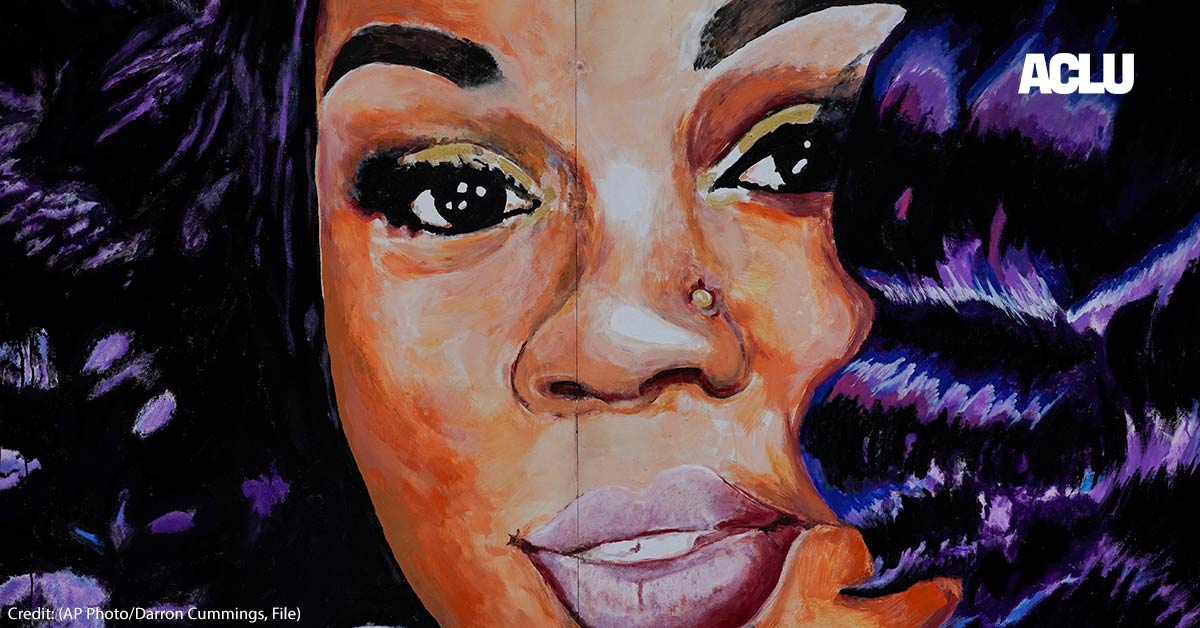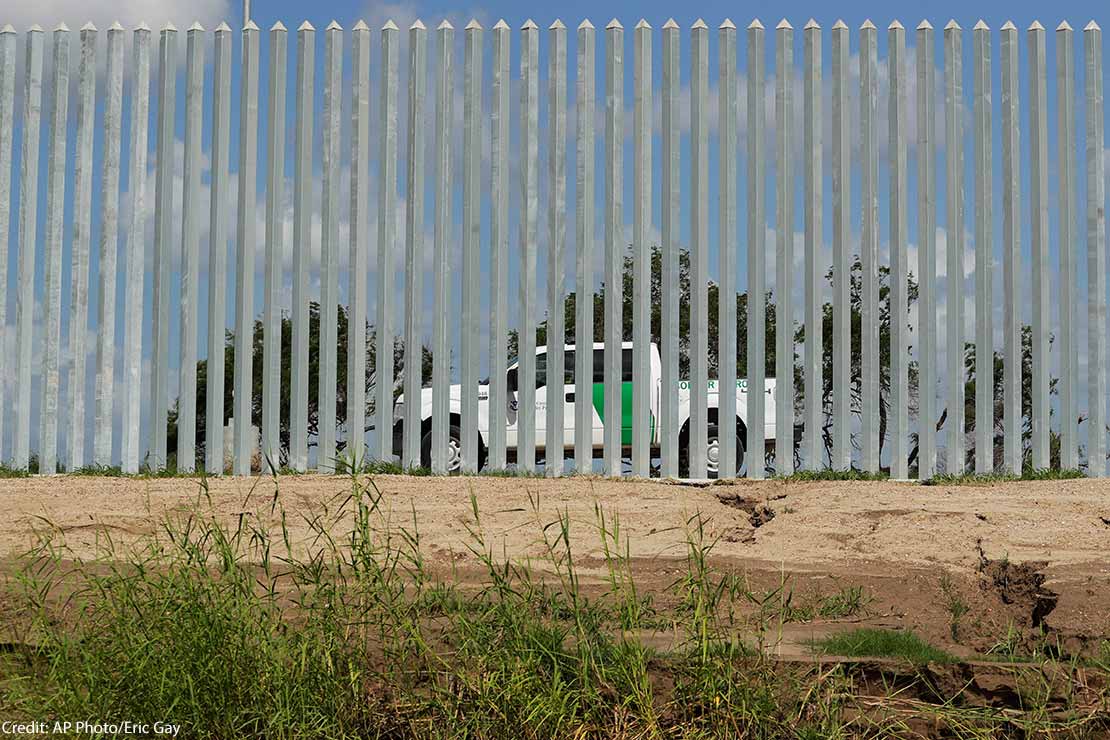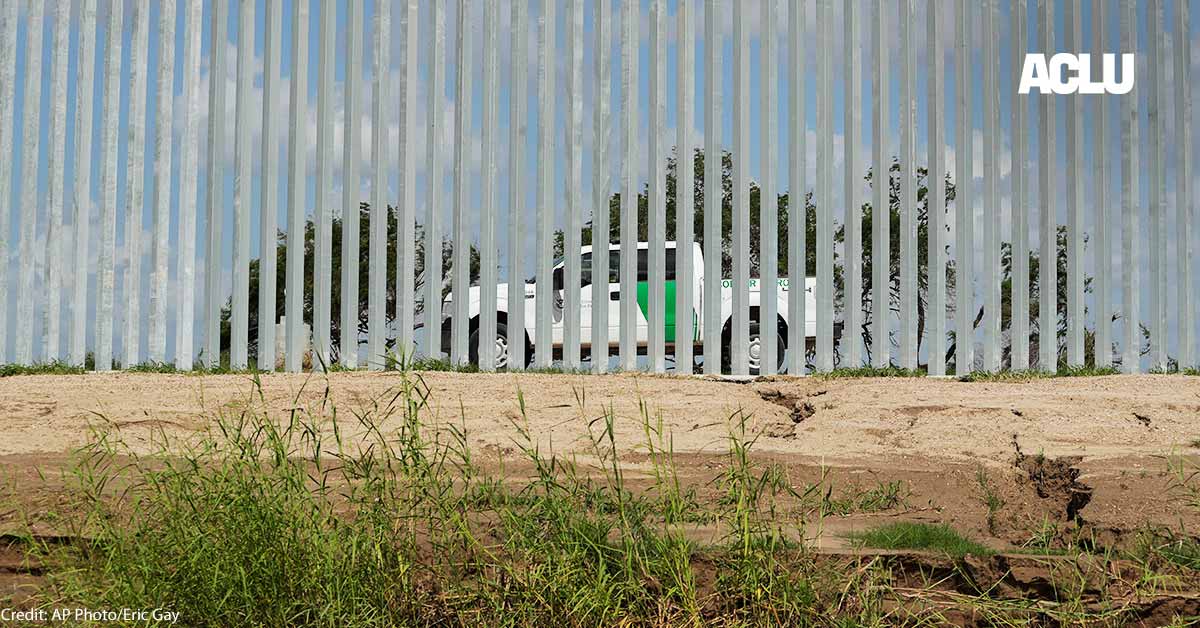We, your Black friends, family, and colleagues, are not okay. A Black woman, asleep in her bed, was murdered in cold blood and the system didn’t just find her killers innocent — they found their crime, the crime of ending the life of a Black woman, unworthy of even being charged.
We work alongside you at the American Civil Liberties Union, fighting for a country that’s never loved us and forced to fight within a system built to harm and kill us. A legal system that says explicitly that Black lives do not matter. A system that calls for more accountability for putting bullets into drywall than into a Black woman.
I ask you to imagine how the system would have responded if these police had murdered a white woman EMT (during a global pandemic) in her sleep. Does anyone think it would have taken six months to convene the grand jury? Does anyone think there wouldn’t even be a trial? Does anyone think that this country reacts and punishes the harm done to Black women with even a semblance of the outrage and protection we reserve for other communities?
If you are not Black and you’re asking yourself, “How can I help my Black friends, family members, and colleagues?”, here is a non-exhaustive list of what you can do today:
1. Offer your Black staff and colleagues the opportunity to take time off and help redistribute their workload. Do not just send a note that says, “It’s okay if you need to take some time.” Send a note that says, “I want to support you in taking time off. What can I take off your plate? What meetings can I attend in your place? How can I make that happen?”
2. Be mindful of when/how you are processing your feelings. If you’re not Black, this is the time to be especially mindful of how, when, and with whom you are processing your grief, pain, and anger. Do not put additional emotional labor on your Black friends and colleagues.
3. Do acknowledge the impact of this tragedy. Carve out space in agendas you create to address the trauma and be clear not to move on with “business as usual” without holding that space.
4. Call each other in and call each other forward. Be in solidarity by spending your political capital on racial justice at work and find a way to do it without virtue signaling or centering yourself. Most of your allyship should take place “backstage,” out of the spotlight.
Continue educating yourself, amplifying Black voices, donating to Black leadership causes, protesting and demanding justice for Black lives. Those actions matter. At the very same time, support and uplift Black people — on your teams, in our organization, and in your life. For every public, external action you take for racial justice, I invite you to take an action inside our walls with that same spirit.
To my Black colleagues: I know you’re not okay. I’m not okay either. We have been fighting for justice every day for 400 years and today we are grieving, we are enraged, and we are exhausted. I see you, I’m with you, I am you. We are not alone in our grief, not abandoned in our anger, not uncared for in our exhaustion. We are in this with each other, with the legacies of our ancestors and the vision of our youth. With the wisdom of our elders and the unwavering guidance of our leaders.
Amber Hikes, Chief Equity and Inclusion Officer, ACLU
Date
Wednesday, September 30, 2020 - 4:45pmFeatured image





